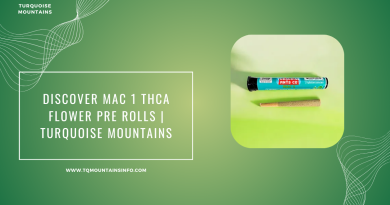Yogi Detox Tea and Prescription Medications: Are There Any Interactions?
Herbal teas like Yogi Detox Tea have surged in popularity over recent years as more people turn to natural remedies for detoxification, digestion, and overall wellness. Packed with ingredients like dandelion, ginger, and licorice root, Yogi Tea claims to support the body’s natural cleansing processes. However, as with many herbal products, a critical question arises: Are there any interactions between Yogi Tea and prescription medications?
Understanding the potential risks of combining herbal teas with prescription drugs is essential for anyone considering detox teas as part of their health regimen. Let’s explore what Yogi Detox Tea contains, the science behind it, and the possible interactions with medications.
What’s Inside Yogi Detox Tea?
Yogi Tea is a blend of various herbs known for their detoxifying properties. The key ingredients include:
- Dandelion Root: Known for its diuretic properties, dandelion root helps the body flush out excess water and toxins.
- Ginger Root: A powerful anti-inflammatory, ginger supports digestion and reduces nausea.
- Burdock Root: Traditionally used to purify the blood and support liver function.
- Licorice Root: Used in many cultures to soothe the digestive tract, licorice also has anti-inflammatory properties.
- Indian Sarsaparilla Root: Often associated with detoxifying the blood and improving skin health.
While these ingredients offer benefits for detoxification and wellness, their potent effects can sometimes interfere with how prescription medications work in the body.
Potential Interactions Between Yogi Detox Tea and Medications
1. Blood Pressure Medications
Many of the herbs in Yogi Tea, especially licorice root, can interact with blood pressure medications. Licorice contains glycyrrhizin, which can cause the body to retain sodium and lose potassium. This imbalance may increase blood pressure, counteracting the effects of antihypertensive drugs.
Patients on medications like beta-blockers, ACE inhibitors, or diuretics should exercise caution when consuming Yogi Tea. Glycyrrhizin in licorice can also cause an increase in the risk of developing an irregular heartbeat or other cardiovascular issues when combined with these medications.
2. Diuretics
Since Yogi Tea contains natural diuretics like dandelion root, combining it with prescription diuretics (often used to treat heart failure, liver disease, or hypertension) could intensify the diuretic effect. This can lead to dehydration, electrolyte imbalances, and even low blood pressure. People taking diuretics such as furosemide (Lasix) or hydrochlorothiazide (HCTZ) should be cautious about adding extra diuretics from herbal sources.
3. Blood Thinners
Herbs like ginger and dandelion are known for their blood-thinning properties, which can enhance the effects of anticoagulant medications like warfarin (Coumadin). Taking Yogi Tea in conjunction with blood thinners could lead to an increased risk of bleeding. If you’re on blood-thinning medications, even natural supplements that affect blood clotting can be dangerous.
4. Liver Metabolism Interference
The liver metabolizes most prescription medications. Herbs like burdock root in Yogi Tea may affect liver enzymes, leading to faster or slower drug metabolism. This can reduce the efficacy of drugs or increase their toxicity. If you’re taking medications that heavily rely on liver metabolism—such as statins, antidepressants, or anti-seizure medications—there could be potential interactions with Yogi Tea.
5. Antidiabetic Drugs
Yogi Tea can affect blood sugar levels, particularly with its ingredient licorice, which may raise blood sugar levels. Meanwhile, burdock root may help lower blood sugar. This mixed effect could interfere with antidiabetic medications like metformin or insulin, leading to fluctuations in glucose levels that could be harmful.
Key Considerations Before Consuming Yogi Detox Tea
If you’re currently taking any prescription medications, it’s essential to consider the following precautions before incorporating Yogi Detox Tea into your daily routine:
- Consult a Healthcare Professional: Always check with your doctor or pharmacist about potential interactions between Yogi Tea and your medications. This is especially crucial if you are taking medications for chronic conditions like heart disease, diabetes, or depression.
- Monitor for Side Effects: If you start using Yogi Tea, be mindful of any unusual symptoms like dizziness, excessive thirst, lightheadedness, or unusual bleeding. These could be signs of adverse reactions between the tea and your medications.
- Consider Short-Term Use: Detox teas are typically not designed for long-term use. Prolonged consumption may lead to dependency, particularly on their laxative or diuretic effects. If you’re using prescription drugs, avoid making detox tea a daily habit without professional guidance.
- Check for Licorice Content: If you are sensitive to licorice or take medications for blood pressure or blood thinners, you might want to avoid Yogi Tea entirely or choose a detox tea without licorice.
The Role of Holistic Health
While Yogi Tea offers benefits as a natural herbal remedy, it’s crucial to remember that interactions with medications can occur. A holistic approach to health, where alternative remedies and conventional medicine are harmonized, is often the best path to wellness. For example, Avant integrates holistic approaches with modern medical care to ensure that individuals receive well-rounded treatment that considers both natural remedies and prescribed medications.
Conclusion
While Yogi Detox Tea is marketed as a natural way to support detoxification and general health, it can interact with various prescription medications. Understanding the potential risks and consulting healthcare providers before combining herbal teas with medications is key to avoiding adverse effects. Always prioritize safety, especially when mixing herbal remedies with prescribed treatments.
Avant offers insights into how patients can integrate natural detox teas like Yogi Detox into a broader healthcare regimen, but always with proper medical guidance.
FAQs
1. Can I drink Yogi Detox Tea if I’m on blood pressure medication?
Yogi Detox Tea contains licorice root, which can raise blood pressure and counteract the effects of antihypertensive medications. Consult your doctor before using it.
2. Does Yogi Tea affect blood thinners?
Yes, ingredients like ginger and dandelion in Yogi Tea have blood-thinning properties that can increase the risk of bleeding when taken with anticoagulant drugs.
3. Can Yogi Tea affect my blood sugar levels if I have diabetes?
Yes, Yogi Tea can either raise or lower blood sugar, depending on its ingredients. This can interfere with antidiabetic medications like insulin or metformin.
4. Is it safe to drink Yogi Tea while on liver medications?
Burdock root in Yogi Tea may interfere with liver enzyme metabolism, potentially affecting how your body processes medications. Check with your healthcare provider before use.
5. Should I avoid Yogi Tea if I’m taking diuretics?
Yes, Yogi Tea has natural diuretics like dandelion root, which can amplify the effects of prescription diuretics, leading to dehydration or electrolyte imbalances.
Ultimately, are you sure it’s safe to mix Yogi Detox Tea with your current medications? Always consult a healthcare provider to be certain.
Also know about Spearmint Tea: A Soothing Elixir for Relaxation




